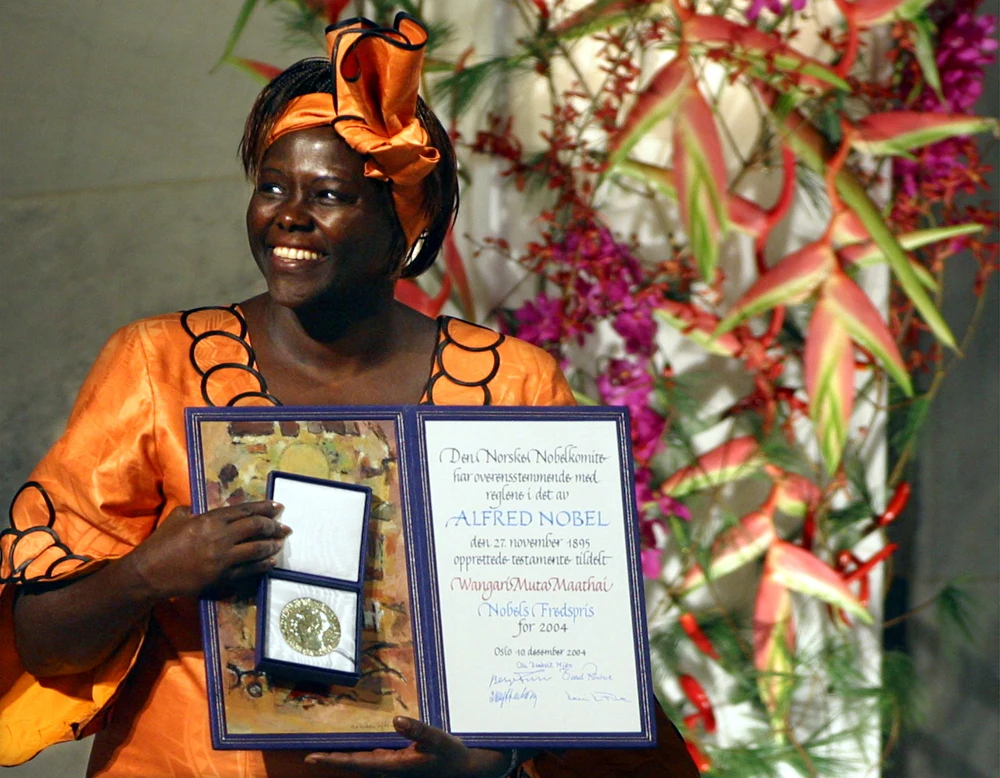
Wangari Maathai - The Green Warrior Who Transformed Africa and the World
Mar 19, 2025When parents hold their child for the first time, they dream of the possibilities that lie ahead and the achievements their child may accomplish. Holding their little hands in ours, we are grateful for the moment and excited to watch extraordinary possibilities unfold. Wangari Muta Maathai’s parents likely had these same hopes and dreams, unaware that their daughter would go on to have an extraordinary impact on the world.
Wangari Maathai was born on April 1, 1940, in Nyeri, Kenya. She grew up in a traditional Kenyan household and pursued her education both locally and internationally. She attended Mount St. Scholastica College in Atchison, Kansas, graduating in 1964 with a Bachelor’s degree in Biological Sciences. She then earned a Master’s of Science from the University of Pittsburgh in 1966 before continuing her education in Germany.
In 1971, she made history as the first African woman in East and Central Africa to earn a Ph.D., awarded by the University of Nairobi, where she later became a professor and, in 1976, the first woman to chair the Department of Veterinary Anatomy. In 1976, Maathai became involved with the National Council of Women of Kenya, serving as its chair from 1981 to 1987.
During this time, she observed that many women, as primary caregivers, struggled to meet their families’ basic needs. To address this, she founded the Green Belt Movement in 1977, an initiative empowering women to plant trees on farms, schools, and church compounds. This effort not only combated deforestation but also tackled food scarcity, improved water conservation, and addressed broader social challenges.
By 2004, the movement had planted over 20 million trees, and as of 2024, the Green Belt Movement has surpassed 50 million.

Photo grabbed from nbcnews.com
In 2004, Wangari Maathai became the first African woman to receive the Nobel Peace Prize for her contributions to sustainable development, democracy, and peace. The Nobel Committee recognized her ability to mobilize African women and acknowledged that tree-planting was more than an environmental effort—it was a movement for democracy, women's rights, and international solidarity. As the committee noted, "She thinks globally and acts locally."
During her acceptance speech, she humbly accepted the award on behalf of those often overlooked—women fighting for peace, sustainability, and access to basic necessities such as water and firewood. She emphasized the responsibility of governments to care for both their citizens and the environment, stating:
"As we progressively understood the causes of environmental degradation, we saw the need for good governance. Indeed, the state of any country’s environment is a reflection of the kind of governance in place, and without good governance, there can be no peace."
She highlighted how environmental degradation leads to resource conflicts, violence, and displacement, further emphasizing the connection between sustainability and stability.
Through education, advocacy, and action, Maathai transformed communities by demonstrating how environmental stewardship leads to social and economic prosperity. She dedicated her life to fighting corruption, addressing scarcity, and opposing violence against women and children, leaving behind a legacy of resilience and empowerment.
For more information about the Green Belt Movement, visit https://www.greenbeltmovement.org/.
References and Resources:
🔗 Wangari Maathai – Nobel Lecture. NobelPrize.org. Nobel Prize Outreach 2025. Wed. 12 Feb 2025. https://www.nobelprize.org/prizes/peace/2004/maathai/lecture/
🔗 https://www.greenbeltmovement.org/
🔗 NobelPrize.org. Nobel Prize Outreach 2025. Wed. 12 Feb 2025. https://www.nobelprize.org/prizes/peace/2004/maathai/facts/
